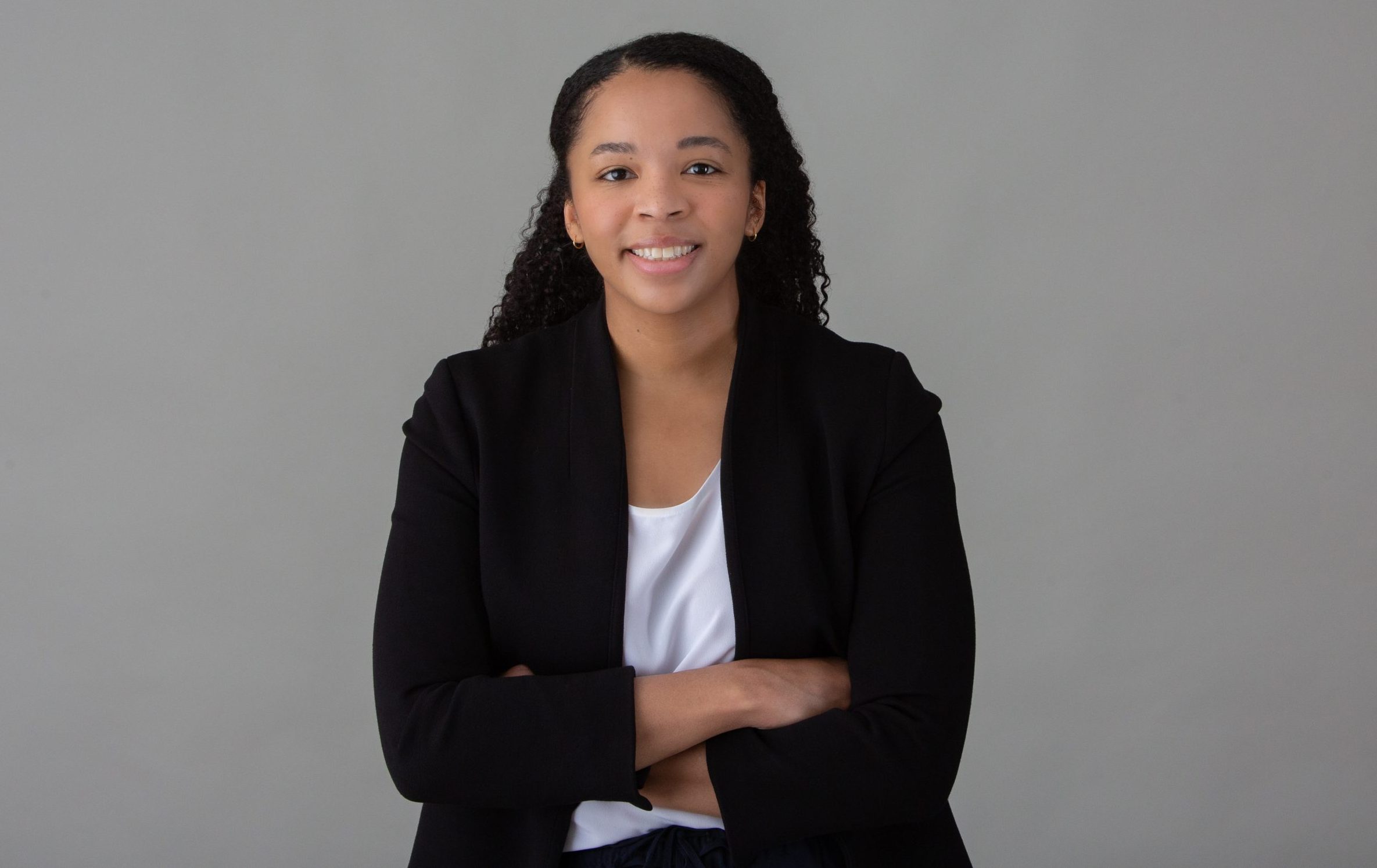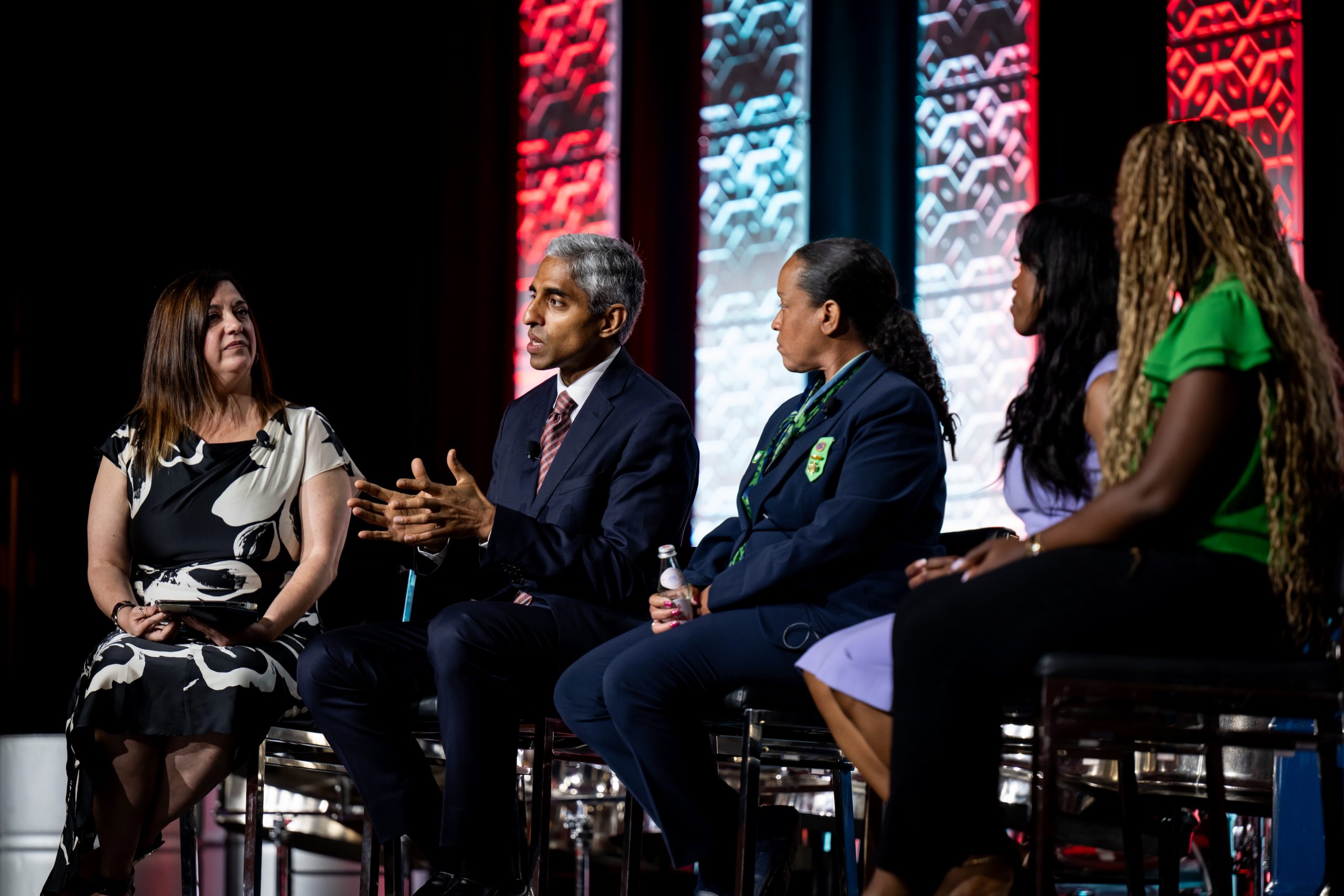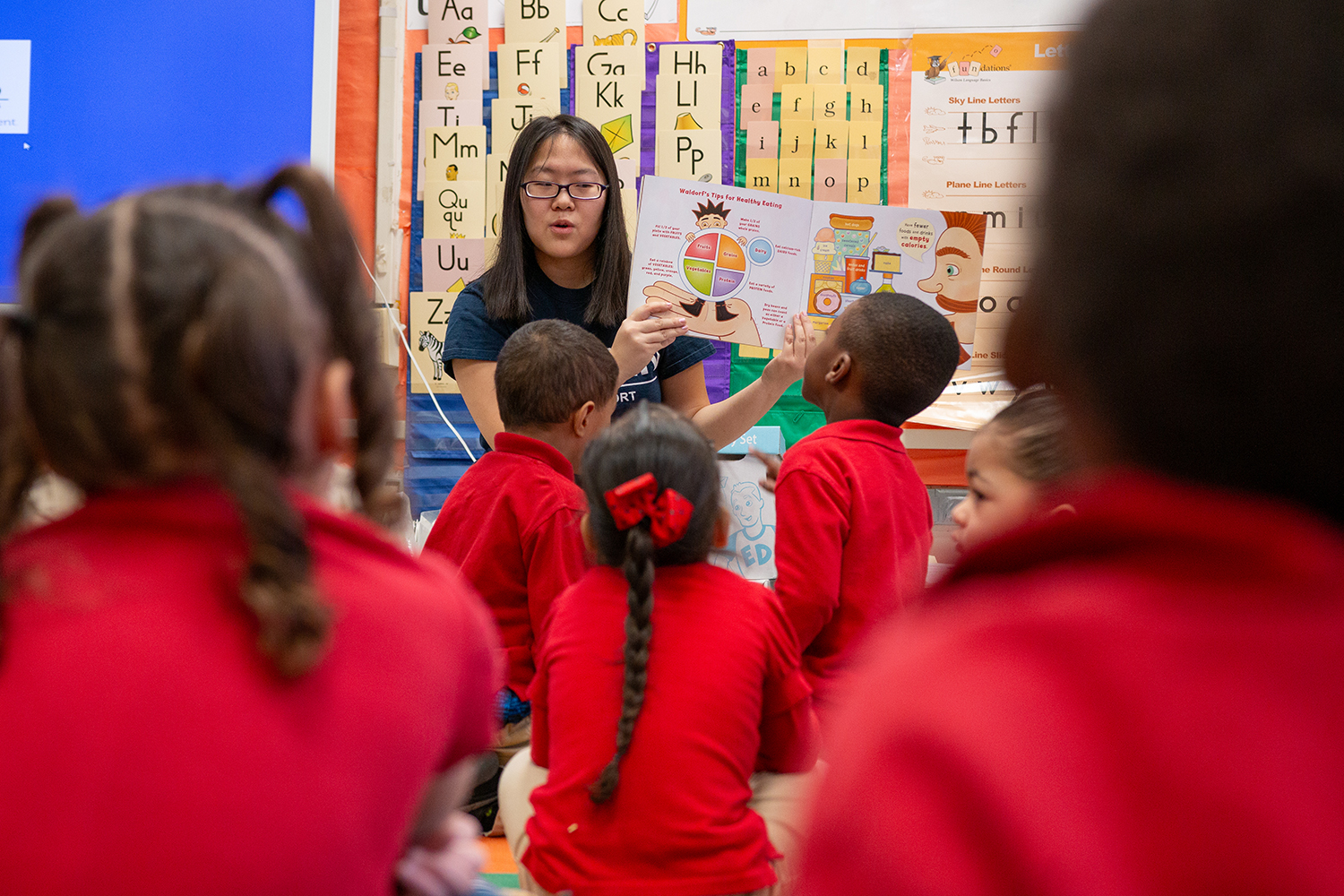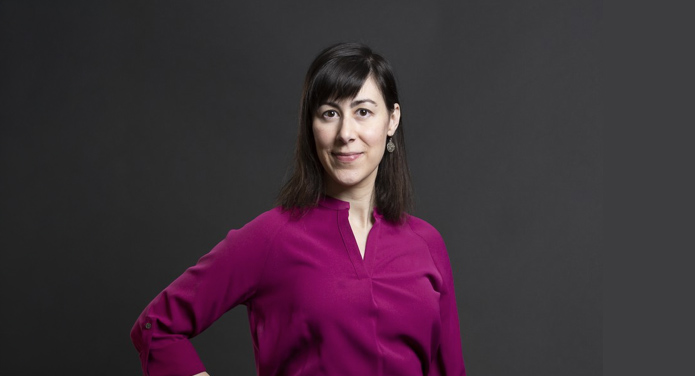Elite Neurosurgery Residency Thriving at UConn
Black female neurosurgeons are rare. So rare, in fact, that they make up just 0.6% of neurosurgeons. But that statistic isn’t stopping Dr. Taylor Burch from pursuing her dream of becoming a neurosurgeon.
Burch, originally from the Chicago area, is now on her way to accomplishing her major goal in Connecticut at UConn School of Medicine. She is a fourth-year resident in the Department of Neurosurgery at UConn.
Three years of advanced neurosurgery training is behind her, with four more years to go – and then add two more years of fellowship training.
Her neurosurgery residency program at UConn is elite, and at the top of its game just like Burch and her fellow neurosurgery residents. In fact, the residency is among only 2% of training programs at hospitals nationwide. It was established by now Chair of Neurosurgery Dr. Ketan R. Bulsara in 2020. Also, during his tenure at UConn’s medical school, UConn has successfully matched more medical students into neurosurgery residencies than in any of the previous decades combined.
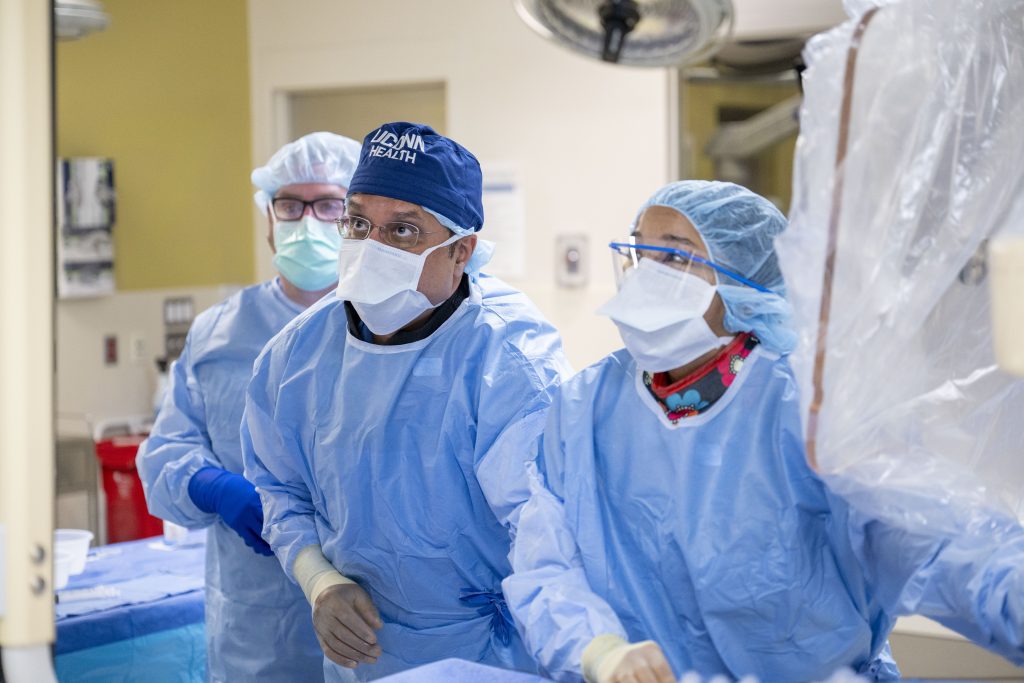
Burch says Bulsara is an incredible teacher of the residents. “He doesn’t put any limits on our aspirations in the field, and of course he has high expectations for us too. Dr. Bulsara has created a very unique, amazing educational program for neurosurgery residents that is one-of-a-kind, hands-on surgically, with ample high-tech simulation training. Attendings are heavily invested and drive four hours plus of protected didactics each week, which is rare. Faculty members are truly dedicated to trainee education at UConn.”
Burch received her undergraduate degree in neuroscience at Duke University, and her masters in physiology, the how and why of our anatomy’s innerworkings, at Case Western Reserve University.
“I knew early on I loved the central nervous system, and I wanted to take a deeper dive,” she says.
She then spent a year in AmeriCorps teaching seventh graders on New York City’s Lower East Side at an under-resourced charter school. Although an accomplished athlete, she had no basketball experience, but that didn’t stop her from pitching in to coach their girls’ basketball team.
“Put me in,” she says, “I’ve always loved to mentor.”
Next step for Burch was medical school back home at the University of Illinois, Chicago. But the road to residency training was not so easy for Burch, and she faced significant hurdles along her journey. She didn’t commit to pursuing neurosurgery until rather late in her course as a medical student. “Though that was always my top interest, I was heavily discouraged as the field has a reputation for a grueling lifestyle and hasn’t been historically very diverse.”
Burch stresses, “Black women neurosurgeons make up less than 1 percent of neurosurgeons.”
But that changed at the end of her third year, with a cold-call email sent to another Black woman neurosurgeon in Chicago, Dr. Olabisi Sanusi, in which Burch introduced herself and asked for advice. “She immediately called without even emailing back. I felt, wow, how incredible. She told me if it’s neurosurgery that I wanted, ‘stop thinking about it, and just do it!’”
That gave Burch the self-confidence to keep pushing forward. In one phone call, Burch realized also the power of receiving mentorship, which was going to be key for her success.
Burch adds, “From that moment on, I believed I could become a neurosurgeon. I knew I loved neurosurgery. I couldn’t see myself doing anything else.”
Burch leaned into her mentors, who invested in guiding her toward her dream.
“The National Match Day process is how I got to UConn,” Burch adds, “I felt so happy to match to UConn! The new and growing neurosurgery residency program here at UConn is amazing. It’s a great, hands-on experience with close mentorship and learning from our talented neurosurgery faculty.”
The young and growing residency program she says, while still small with just a few residents, is a very close-knit family with lots of opportunity for operative experience, 1-1 mentoring by faculty, and excellent didactic teaching by the neurosurgeons themselves each week for hours in the classroom. The residents work at UConn John Dempsey Hospital, Hartford Hospital, at Connecticut Children’s.
“Our neurosurgery residency is constantly evolving, with new cases, programming, and lots of first-of-their-kind surgeries for Connecticut,” she says. “I love the idea that residents contribute to shaping the residency program’s future and the culture of it, too. We are always asked how we can do things better.”
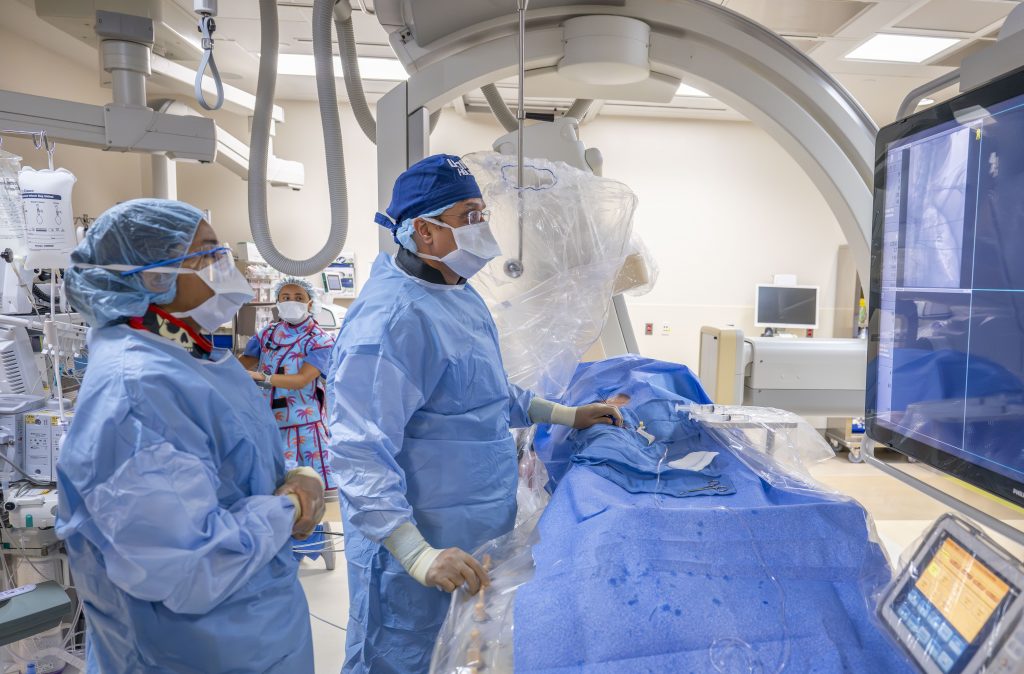
Burch is training to become a skull-base and cerebrovascular surgeon someday focusing on such conditions as aneurysms, brain tumors, and strokes.
The stakes are high, she says, for this type of patient care, but she likes using her surgical skills and knowledge to help patients in critical need.
“It’s a privilege to be trusted by our patients to participate in their care. We want to do the most perfect and safe procedure for them every single time,” says Burch, who finds her comfort zone in the operating room and enjoys learning something new during each and every case.
When preparing for and operating in big cases for many long hours, Burch says she and colleagues might not be presently aware of the impact they have.
But then they are reminded.
“Today a family stopped me in the cafeteria to thank me for making sure that they had time to be with their loved one in the pre-op area so they could pray together prior to his surgery,” she says. “This reminds me of how being present and giving just a little extra time, even when you don’t have it, can make such a big difference.”
Burch is also inspired daily by the neurosurgeons she works with and her patients. “My attendings have such resilience and poise. It is very inspiring and aspirational for me. The strength of our patients is also very inspiring and gives us strength back too.”
Burch remembers that, shortly after she cared for a newly diagnosed high-grade malignant brain tumor patient in the hospital, the patient asked the resident to give her a call at home.
The patient simply wanted to share, “Let me know if there is anything I can ever do for you!”
Burch was floored. Even after receiving a life-altering diagnosis of brain cancer, her patient wanted to selflessly help another person.
“This encounter really put things in perspective for me. Like wow, it reminds you of why it’s important to strive to do the best you can to help each patient,” says Burch.
How Tennis is a Match for a Neurosurgeon
Burch recounts that she has faced challenges of her own, just like her patients and the families she encounters as a neurosurgery resident.
“I’ve learned to always be compassionate, be human, and relatable with your own life experiences. And to always ‘show up’ as actions do speak louder than words.”
Burch is not only a talented neurosurgery trainee. She was a competitive, nationally ranked junior tennis player in her youth. Tennis remains her favorite hobby in her free time.
“I played tennis seriously on the national scale,” Burch recalls. “My high school team won the Illinois state championships three out of four years.”
But Burch tore her ACL, and her competitive tennis ended.
This challenge and tennis taught Burch a great deal.
“Tennis taught me how to hone my skills, set goals, strategically approach a match or a surgery, to prepare and execute through the steps. It also taught me to perform under pressure, to be super critical of my performance, quickly review any missteps, reset/release as to not dwell, and refocus on succeeding on the next task. Tennis taught me how to be clear-headed for the next patient case, to always be humble but confident, and to keep moving forward.”
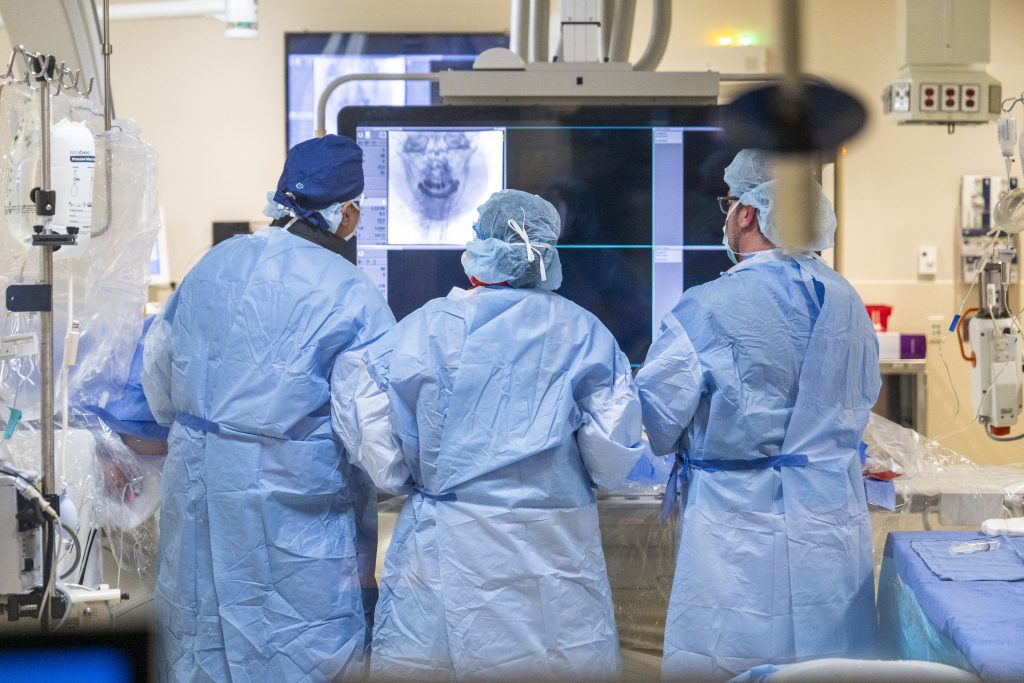
And as Burch moves forward to her dream of becoming a neurosurgeon in the next several years, she knows “it will take a lot of work to get there.” But when she looks back on her success many years from now, she hopes she can say:
“I contributed to propelling new neuroscience and neurosurgery forward, mentored others filled with self-doubt, teaching them that they can make it in neurosurgery, and I was the best version of myself for all my patients that allowed me to have the privilege of serving them.”
Burch concludes, “We owe it to our patients to give them the very best of ourselves as surgeons every time.”
Latest UConn Today
- Building A World Where Young People Thrive: SSW’s Innovations Institute Hosts 2025 Training InstitutesThe UConn School of Social Work’s Innovations Institute offered more than 160 workshops focusing on ways to improve outcomes for children, young adults, and families
- Husky Reads Brings the Joy of Reading and Healthy Lifestyles to Connecticut PreschoolersThe UConn Husky Nutrition & Sport initiative connects UConn students with hundreds of young children across the state each year
- UConn Students Explore Entrepreneurship Across Borders Through an Abrahamic LensThe program will be offered again in Spring 2026
- Real Estate Professor Cohen: Study Confirms that Properties Adjacent to Tornado Destruction Initially Plunge in ValueLessons learned may apply to areas recovering from other natural disasters
- Blocking Cancer Cells from SpreadingPublished findings in Science Translational Medicine identify a future biomarker that may help match a melanoma patient with the right therapy for them.
- Carolan Awarded NIH Loan Repayment Award in Recognition of her Long-COVID ResearchKelsi Carolan, assistant professor in UConn’s School of Social Work, is investigating the effects of long-COVID on employment, family and social relationships, and mental health



